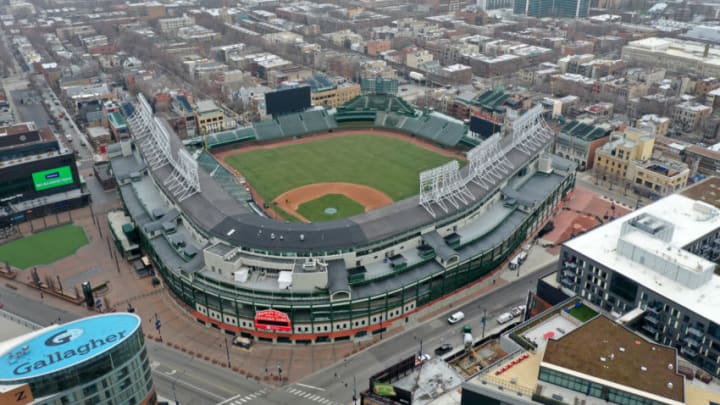No matter how many games it entails, a short Chicago Cubs regular season schedule will create chaos and hurt the odds of the team making the postseason.
It surely won’t be 162. It might be 100. It might be none at all. Regardless of how many regular season games the Chicago Cubs play in 2020, having a shorter schedule will decrease the chance that there’s postseason baseball in Wrigleyville this fall.
Here’s some good news though, it’s not just the Cubs whose playoff chances decline due to the shorter season.
The St. Louis Cardinals, Washington Nationals, Minnesota Twins, and even powerhouse teams like the Los Angeles Dodgers and New York Yankees will all see their playoff odds go down due to the abbreviated schedule.
Here’s why: In a normal, 162-game season, it often takes quite some time for the better teams to really put some distance in the standings between themselves and the teams that aren’t in contention that year. The shorter the season is, the less time that the good teams will have to separate themselves from lesser teams, especially those who may overperform or get off to a hot start.
To get a better idea of what I’m talking about, let’s look at an example.
Let’s say that the 2020 MLB regular season starts on June 1st and the teams play the rest of their games as scheduled from that point forward, making no adjustments from the original calendar. For the Cubs, that means they’d play 102 regular season games in 2020.
In 2019, the Cubs played their 102nd game of the season on July 24th. After that game, their record was 55-47, putting them half of a game ahead of the Cardinals in the division. The Milwaukee Brewers were two games back, the Cincinnati Reds were eight games back, and the Pittsburgh Pirates were eight and a half games back.
At that point, the three frontrunners in the division had clearly emerged and separated themselves from the bottom of the pack, but that wasn’t the case throughout the rest of the league.
In the National League on July 24th, the Philadelphia Phillies were 54-48. They would finish the season 81-81. The San Francisco Giants were 52-51. They ended the year with a 77-85 record.
As of July 24th, both the Phillies and Giants were within three games of a Wild Card spot. At the end of the season, they’d both finish at least eight games back.
In the American League, it was a similar story. On July 24th, the Boston Red Sox were 56-47. They’d finish the season 84-78. The Los Angeles Angels were 54-49. They finished 72-90. The Texas Rangers were 51-51. They finished the year 78-84.
As of July 24th, the Red Sox, Angels, and Rangers were within seven games of a Wild Card spot, but by the time the regular season ended, they were all at least 12 games back.
It’s clear to see that if the 2019 season had ended when the Cubs hit the 102 game mark, a lot of mediocre teams would’ve been fighting at the end of the year for a playoff spot.
Now, the 102 game mark is just a number I selected in the assumption that the season started on June 1st. It’s very possible that the season could start even later than that, further reducing the number of games and making things even more chaotic.
The fewer games that are played, the higher the likelihood that the good teams won’t have enough time to distance themselves from the bottom feeders of the league.
Many things are up in the air right now, and a lot of change could still come to the MLB schedule. Things like playing games with no fans in attendance, an expanded playoff field, and neutral-site postseason games have been suggested – any one of those moves could somewhat address this potential problem of some of the better teams in the league missing the playoffs.
Simply put, at this time, what will happen with the MLB season is uncertain, but it’s hard to see a situation in which the regular season isn’t shortened. If that happens, the Cubs’ playoff chances will suffer.
